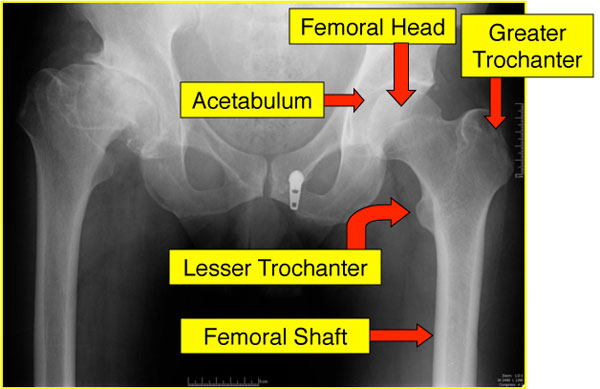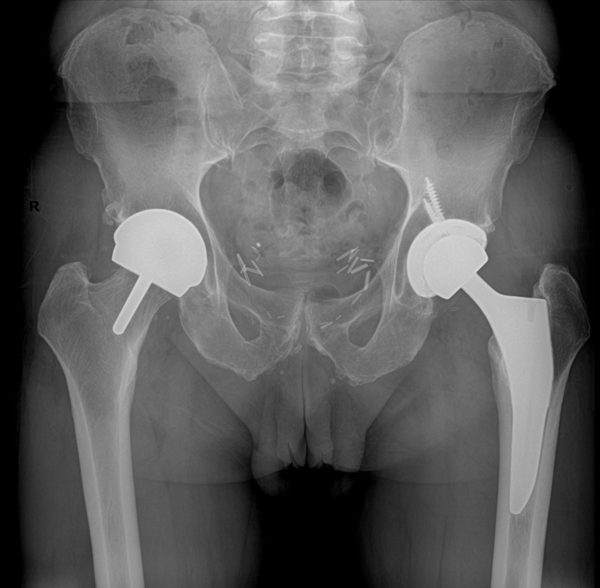
About Dr. Della Valle
Dr. Della Valle is a professor of Orthopaedic Surgery at Rush University Medical Center. He is not only a busy surgeon (having performed more than 11,000 hip and knee replacements) but a respected leader in the field of hip and knee research. He travels extensively sharing his research and these experiences allow him exposure to the most up to date information to maximize patient quality of care.
More about Dr. Della Valle Dr. Della Valle's CV Schedule an AppointmentWhat are the potential advantages of a hip resurfacing compared to a conventional hip replacement?
In my opinion, the biggest advantage of a hip resurfacing is a greater ability to return to activities that include running. While most studies suggest that pain relief is equivalent between a conventional hip replacement and a hip resurfacing, there are some other potential advantages to a hip resurfacing include a lower risk of dislocation, a lower risk of pain in the thigh and a lower risk of feeling like your lengths are different after surgery.
What are the negatives of a hip resurfacing?
Depending on your perspective there may be several. First, the most common complication of a hip resurfacing is a fracture of the femoral neck. The risk factors for this complication include female sex, older age and smaller patient size.
Hip resurfacing also requires a larger skin incision (as it is more difficult to perform), however in general, hip resurfacing patients seem to have just as fast of a recovery as patients who have a conventional total hip replacement.
The biggest risk, however, of a hip resurfacing may be the need for a metal on metal bearing. This is a complex discussion that needs to be undertaken directly with Dr. Della Valle if you are interested in this procedure.

Basic Hip Anatomy
Who are the best candidates for hip resurfacing?
Men under the age of 55 years old with osteoarthritis are in general the best candidates for hip resurfacing. Further, the larger the patient, the lower the risk of complications. These are complex decisions however, and require a full discussion with Dr. Della Valle to determine if hip resurfacing is an option for you.
How long do I need to use a cane or crutches after surgery?
We ask that patients use at least SOMETHING for the first six weeks after surgery. This can be a walker, crutches, one crutch or a cane. This makes a big difference in terms of the forces across your hip joint and will protect if while the implants are healing to the bone. If someone tells you that you don’t need to use your assist device earlier than six weeks please ask that health care provider to call our office.
Can I return to work after surgery?
Most patients are comfortable returning to work 6-8 weeks after surgery. We can provide a maximum recovery time of 12 weeks.
Do I need formal physical therapy after surgery?
No, patients do not necessarily need formal physical therapy after hip replacement surgery. There is increasing data from research that suggests that if you took 100 patients who had their hip replaced, and half got physical therapy and half did exercises on their own at a year after surgery there does not seem to be much difference between the two groups of patients. If you want to go to physical therapy to learn how to use your assist device or for instruction on which exercises to do and how to do them we certainly encourage that. Midwest Orthopaedics at Rush now has six physical therapy locations (https://www.rushortho.com/clinical-staff/physical-therapists) and we highly recommend these facilities as we know the physical therapists there and they will call us directly if you are having any type of an issue or problem that we need to be aware of. You may chose to do exercises on your own with the guidance of our texting service.
https://insights.ovid.com/pubmed?pmid=28419032
https://www.ncbi.nlm.nih.gov/pubmed/28506775
What about return to sex after surgery?
Research that included our patients showed that patients have sex more frequently and of better quality after hip replacement surgery.
In general, you should avoid extreme positions for the first 6 weeks after surgery and it is safest for you as the patient to be on the bottom during this time period.

This patient has a hip resurfacing on the right hip and a total hip replacement on the left.









